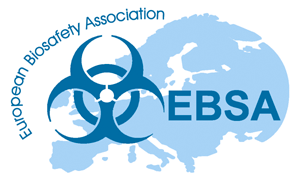About EBSA20 - Course N - Latest methodologies in gene technology New risks? New uncertainties? New risk assessment?
EBSA20 - Course N - Latest methodologies in gene technology New risks? New uncertainties? New risk assessment?
Instructors:
Ursula Jenal, Jenal & Partners Biosafety Consulting, Switzerland
Nigel Silman, Public Health England & University of the West of England, UK
Short description of the course:
Techniques of genetic engineering have allowed significant reconstruction of organisms. New methodologies in gene technology might aim at even more extensive synthetic recombination of genetic material involving, inter alia, conventional or xeno DNA and RNA, chimeric viral vectors, and inserts from all sorts of different biological backgrounds resulting in more or less synthetic constructs. New techniques might also lead to combinations of biologically active genetic material with synthetic nanoparticles, notably in nanomedicine.
Assessment of potential risks related to the latest genetic engineering methodologies requires thorough evaluation of the characteristics of resulting constructs, i.e. chimeric or de-extinct viruses, and their potential effects on people and the environment. Risk assessment might lead to obvious findings, at first hand, but knowledge gaps might give some uncertainty to them, which should not be disregarded. For instance, by using gene drives (super-Mendelian inheritance), potential non-target effects might be much more prominent compared with conventional genetic engineering.
This course will cover latest methodologies in genetic engineering, such as gene drives, synthetic biology etc. and discuss relevant issues that need to be addressed in risk assessment of such activities, including both biosafety and biosecurity aspects as well as bioethics. Applicable risk assessment methodologies will be proposed.
With this course, participants will not only understand latest methodologies in genetic engineering but will also know how to be able to address potential risks of these methodologies and their outcome. Participants will be able to ask the right questions, to discern between known and unknown risks and take consequences from knowledge gaps such as application of increased safety measures.
The course mainly focuses on genetic engineering methodologies applied under contained use conditions, however, it also expands on issues that need to be addressed due to an accidental release of engineered organisms into the environment to their use as dedicated medicinal products or deliberate release as biocides.
The workshop is suitable for all interested and involved in thorough biological risk assessment, foremost BSOs facing new challenges regarding genetic engineering.
The workshop topics will be covered by both introductory presentations, intermittent discussions and case studies. Participants are asked to actively participate in the workshop by bringing their own risk assessment questions and work situation up for discussion.
Major topics:
- genetic engineering methodologies,
- risk assessment in genetic engineering,
CWA 16335:2011 Biosafety professional competence reference
The course draws on the CWA16335:2011, mainly on section 7.2.2. and Annex C.2.1.2 on general principles of molecular biology and genetic engineering, and on section 7.2.7 and Annex C.2.1.2.5 on biorisk assessment and management and on section 7.2.8 and Annex C.2.1.2.6 on environmental safety .
